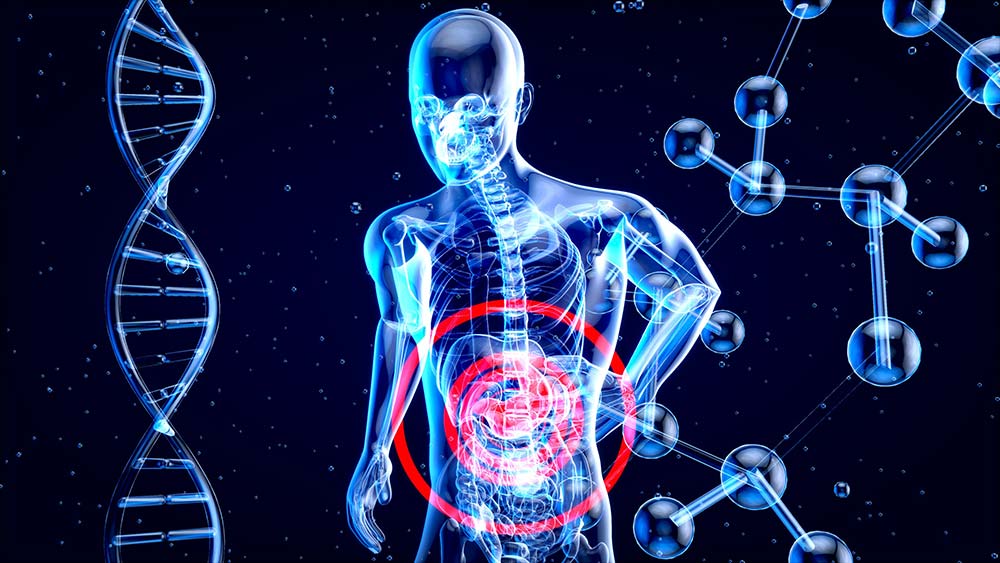When one thinks of the word metabolism, it usually conjures up thoughts of either lean or obese individuals. From a scientific perspective, metabolism refers to the sum total of all the biochemical reactions that allow us to do everything we take for granted in a twenty-four hour period, however none of it would be possible without changing energy into a usable form at the cellular level and, of course, our energy comes from food.
This means we don’t just feed the stomach when we eat, but instead our meals are broken down into the various fuels required by every one of the trillions of cells in our bodies. In order to get the best metabolic bang for our breakfast, lunch and dinner, we need to have a healthy digestive system.
Starving to Death on Full Stomachs
But if you watch television or flip through your favorite magazine, it won’t be long before you see an advertisement for antacid tablets or remedies for constipation. And what are disorders like heartburn or constipation if not digestive problems?
The question is, if we have digestive issues, how can we effectively turn our foods into energy in order to experience optimal health? The answer is, we can’t! In fact, many North Americans are literally starving to death on full stomachs due to the nutrient-void foods they are constantly placing in their systems and the less-than-optimal digestive system’s they are operating with as a result of these nutrient void and often problem causing foods.
Stop Using Band-Aids
While the bowel ads you see and hear on TV, print and radio might get things moving for you, and a tablet might temporarily take that heartburn away, have these products really solved the problem in the end? Once again, no! If they did, it would be unlikely that 60 to 70 million people in the U.S. alone would be suffering with digestive complications1—which keeps them coming back for more and more of these band-aid products! So, instead of using products that might mask an underlying condition, isn’t it more proactive and pro-metabolism to address the underlying factors that got us to that place to begin with, not to mention the ones that are still keeping us there?
Your Gut on Fire
Whether you suffer from poor digestive health, chronic constipation, irritable bowel syndrome (IBS), ulcerative colitis or Crohn’s disease—although varying in severity—most intestinal disorders have an inflammatory component that is either the cause of the disorder or the underlying mechanism that keeps the intestines from getting better. In fact, diseases like ulcerative colitis and Crohn’s are commonly referred to as inflammatory bowel diseases (IBD).2
Over the course of a lifetime, over 25 tons of food will have passed through your mouth and been processed through your gastrointestinal tract. This means that your gastrointestinal system is one of the hardest working systems in your body. Your intestines are also one of the first doorways for foreign substances to enter the body, which is why the bulk of your immune system lines the small intestines in specialized lymph tissues called Peyer’s patches.
The Peyer’s patches contain high concentrations of immune cells called lymphocytes that act like bouncers, destroying everything in their path—from invading bacteria, microbes and viruses, to parasites and even cancer cells.3 Your intestines are constantly bombarded with antigens, which are substances that are deemed foreign to the body. Foods—mostly protein—that are not digested properly are also looked upon as invaders to the immune system, resulting in a subsequent attack once they enter the system. Needless to say, your intestines receive more possible threats to the immune system than any other area of the body.4
Peyer’s patches, are constantly monitoring the intestines for possible invaders (i.e. antigens or bacteria), and once detected, they send out specialized troops called B-cells that manufacture proteins called antibodies that act like laser guided weapons against these foreign particles.
Usually due to an inflammatory reaction that may be initiated by any number of causes, the intestinal mucosa can start to break down creating impaired digestion or breaks throughout the intestinal lining called intestinal permeability. Once this happens, undigested food particles leak through—also called leaky gut— creating more and more of a reaction from the immune system, and so the inflammatory cascade begins.5
Even the all too common travelers diarrhea so many experience from vacations to Mexico are associated with inflammation. Researchers from Baylor College of Medicine, in Houston Texas have discovered that the bacterial pathogens responsible for traveler’s diarrhea are also responsible for producing the intestinal inflammation that often accompanies chronic diarrhea.6,7
Anti-Inflammatory Fats
So now that you are aware that the majority of gut related disorders have a definite inflammatory component to them, what are you supposed to do about it? Thankfully there are a few natural ways to overcome inflammatory assaults against your intestines and in the process extract and utilize the nutrients from your foods more effectively. One such natural way comes in the form of specialized fats (mentioned below).
These fats have been documented to exert powerful anti-inflammatory reactions where intestinal problems arise.8 These anti-inflammatory fats include; omega-3 fats (from cold-water fish, flaxseed, hempseed and walnuts), gamma linolenic acid or GLA (from borage or primrose oil), conjugated linoleic acid or CLA (found in grass-fed or free-range game meat, grass-fed derived butter and ghee) and medium chain triglycerides or MCTs (found in coconut oil).
These fats not only work to block powerful inflammatory messengers, they also block the production of Substance P, a chemical produced in the brain that promotes pain and inflammation.9 Eicosapentaenoic acid (EPA) and docosahexaenoic acid (DHA) seem to be the predominant forces behind the anti-inflammatory capabilities of the omega-3 essential fatty acids. EPA and DHA are exclusive metabolites of omega-3 essential fats, found in abundance in fish oil and coconut derived MCTs that have been revered for their anti-inflammatory powers. In fact, studies indicate the numerous benefits of coconut oil on people with intestinal/inflammatory bowel problems like Crohn’s disease. Coconut oil seems to both quench excess inflammation in the gut while also aiding in the repair of gut tissue. Aside from this, coconut oil also has strong antimicrobial properties that kill problem causing microorganisms that are also involved in the creation of chronic inflammation.10
Digest Well and Prosper
So if you are someone who is suffering from any one or a number of inflammatory digestive conditions, it should be your goal to find relief from your intestinal symptoms through proper diet, lifestyle choices, and supplementation. Once every cell in your body is able to benefit from the right nutrients, you will be able to heal your gastrointestinal issue. In order to aid the body in getting at those nutrients, try using high quality digestive enzymes, human strain probiotics, 100 percent food-bound minerals and consuming a variety of fresh, organic, fruits and vegetables, lean sources of protein (think organic and free-range or grass-fed whenever possible), as well as maintaining a good quantity and mix of the anti-inflammatory specialized fats.
References:
- Everhart, J. E. (Ed.). (1994). Digestive diseases in the United States: Epidemiology and impact. (NIH Publication No. 94–1447). U.S. Department of Health and Human Services, National Institutes of Health, National Institute of Diabetes and Digestive and Kidney Diseases. Washington, DC: U.S. Government Printing Office.
- Uhlig HH, Powrie F. The role of mucosal T lymphocytes in regulating intestinal inflammation. Springer Semin Immunopathol. 2005.
- Nagler-Anderson C: Man the barrier! Strategic defenses in the intestinal mucosa. Nat Rev Immunol 1:59 – 67, 2001.
- Lukaczer D. A Gut Feeling: Putting Intestinal Disorders in Order. Delicious Living. April, 2001.
- Loomis H. Peyer’s Patches. The Chiropractic Journal. Feb., 1998.
- Greenberg DE, et al. Markers of inflammation in bacterial diarrhea among travelers, with a focus on enteroaggregative Escherichia coli pathogenicity. Infect Dis. 2002 Apr 1;185(7):944–9. Epub 2002 Mar 19.
- Bouckenooghe AR, et al. Markers of enteric inflammation in enteroaggregative Escherichia coli diarrhea in travelers. Am J Trop Med Hyg. 2000 Jun;62(6):711– 3.
- Ross E. The role of marine fish oils in the treatment of ulcerative colitis.Nutr Rev. 1993 Feb;51(2):47– 9.
- Keeble J, et al. The role of substance P in microvascular responses in murine joint inflammation. Br J Pharmacol. 2005 Apr;144(8):1059 – 66.
- Shilhavy B & Marianity J. “Crohn’s Disease, Irritable Bowel Syndrome, Ulcerative Colitis, and Virgin Coconut Oil” in Virgin Coconut Oil, West Bend, Wisconsin USA, West Bend, Wisconsin, Tropical Traditions, Inc., 2005, p. 62.








